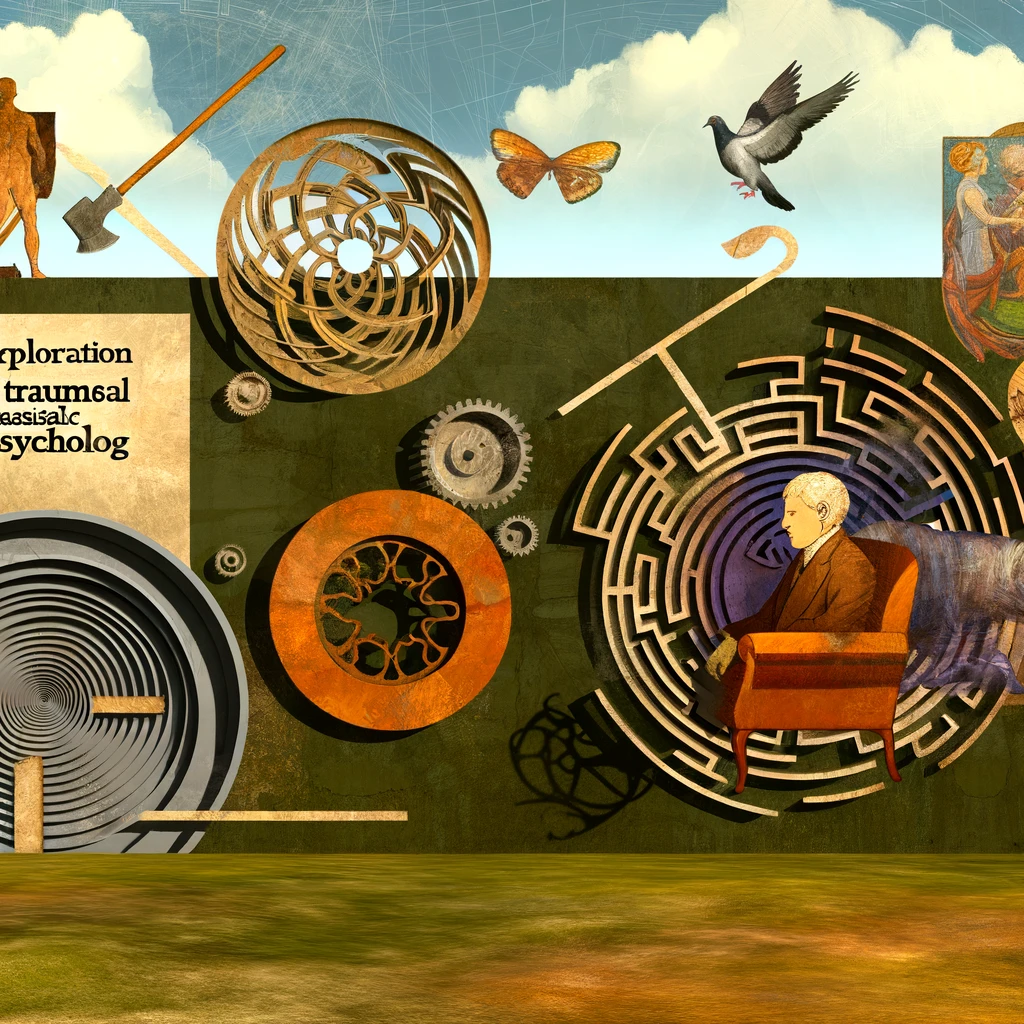In the intricate mosaic of human psychology, trauma stands as a profound and often disruptive force, capable of shaping an individual’s mental landscape in ways both subtle and significant. Classical psychology, with its rich history and diverse perspectives, offers a unique vantage point from which to explore and understand the nature of trauma. This blog post delves into how classical psychological theories and approaches contribute to our understanding of trauma, paving the way for healing and growth.
The Foundations of Classical Psychology
Classical psychology, rooted in the works of pioneers like Sigmund Freud, Carl Jung, and William James, among others, has long been fascinated with the complexities of the human mind. From Freud’s psychoanalytic theory, which emphasizes the impact of early life experiences and unconscious processes, to Jung’s analytical psychology, with its focus on individuation and the collective unconscious, classical psychology provides a framework for dissecting the multifaceted nature of trauma.
Trauma Through the Psychoanalytic Lens
Psychoanalysis, founded by Freud, posits that traumatic experiences, especially those buried in the unconscious, play a critical role in shaping an individual’s personality and psychological issues. According to this view, trauma that is not consciously processed can lead to symptoms such as anxiety, depression, and neuroses. The process of psychoanalysis involves bringing these unconscious conflicts to the surface through techniques like free association, dream analysis, and transference, allowing the individual to confront and work through their trauma.
Jungian Perspectives on Trauma
Carl Jung’s analytical psychology offers another lens through which to view trauma. Jung introduced the concept of the shadow, the part of the unconscious mind consisting of repressed weaknesses, shortcomings, and instincts. He believed that confronting and integrating the shadow was essential for achieving psychological wholeness. For Jung, trauma could lead to the shadow’s emergence, prompting a deep psychological journey towards self-discovery and healing. By engaging with our shadow, individuals can move towards individuation, the process of integrating the conscious and unconscious aspects of the self.
Behavioral Approaches to Trauma
Classical psychology is not limited to psychoanalytic and Jungian theories. The behaviorist perspective, championed by figures like John B. Watson and B.F. Skinner, emphasizes the role of environmental interactions and learned behaviors. From a behavioral standpoint, trauma responses can be seen as learned behaviors to traumatic stimuli. Techniques such as exposure therapy, derived from this school of thought, aim to desensitize individuals to traumatic memories, reducing their power to elicit strong emotional reactions.
The Role of Classical Psychology in Modern Trauma Therapy
While contemporary psychology has evolved to include a wide array of theories and methodologies, the insights of classical psychology remain integral to understanding trauma. Many modern therapeutic approaches, including cognitive-behavioral therapy (CBT) and psychodynamic therapy, owe a debt to classical theories. These approaches integrate the exploration of unconscious processes, the significance of early experiences, and the modification of maladaptive behaviors, offering a holistic path to healing from trauma.
Conclusion
Classical psychology’s exploration of the human psyche provides valuable insights into the nature of trauma and its profound impact on the individual. By drawing on the theories and techniques developed by the pioneers of psychology, modern therapy can offer individuals a means to navigate the complexities of trauma, leading to healing, growth, and a deeper understanding of themselves. As we continue to unravel the intricacies of trauma through the lens of classical psychology, we open the door to more effective and compassionate approaches to mental health and well-being.

Comments are closed